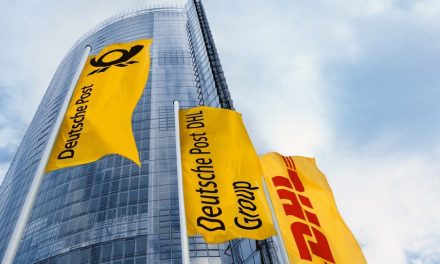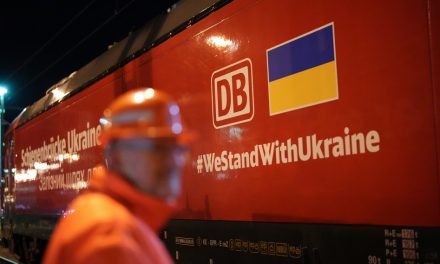
Stinnes deal a switch for rail
The recent $2.5 billion bid by Deutsche Bahn, Germany's state-owned railway, for Stinnes, the country's top logistics group, was a shot in the arm for Europe's beleaguered rail freight industry as it struggles to stem a steady loss of traffic to rival transport modes.
The acquisition will triple the volume of Deutsche Bahn's cargo and logistics traffic, making its freight operations almost as large as its passenger business with around $11 billion in annual revenues.
This is a milestone for Europe's rail freight which has been an also-ran to the higher profile and more politically sensitive passenger sector.
The deal also marks a strategic breakthrough for the rail freight industry, pitching it into the heart of the high performance logistics market. "Stinnes's logistics unit, Schenker, is a perfect match for our [railway] goods transportation and closes the logistics chain up to the warehouses of our customers," enthused DB Chief Executive Hartmut Mehdorn.
Unfortunately, the DB-Stinnes merger likely will remain a one-off deal, improving rail freight inside Germany and on key cross-border rail routes but barely affecting the wider European railway industry.
Deutsche Bahn's acquisition was driven by the consolidation reshaping the German transport industry, rather than part of a trend in European railways. In the same week, Deutsche Post, the giant global mail, logistics and express delivery firm, acquired Lufthansa Cargo's 25 percent holding in DHL International, boosting its stake in the Brussels-based express carrier to 75 percent. The recent wave of dealmaking has left Germany, Europe's largest economy and exporter, with three main transport players: Lufthansa Cargo, Deutsche Post World Net and now Deutsche Bahn, which will have a global reach when it takes over Stinnes.
The Stinnes transaction is about the only piece of positive news emerging from the rail freight front in recent months. True, rail is breaking into new markets including containers from Italy's transshipment hubs, and individual shippers are launching rail-based distribution systems, but there's no hiding the fact that rail is still losing traffic to trucks, and at an accelerating pace.
Rail's share of western Europe's transport has crashed from over 30 percent in 1970 to below 12 percent today and there's no sign the decline is even close to bottoming out.
In fact, there is distressing evidence that premium business, primarily cross-border intermodal container traffic, might have peaked. Intercontainer, the Basel-based container marketing arm of some 30 mainly state-owned European railway companies, suffered a 13 percent drop in traffic to just under 835,000 TEUs in 2001.
The company can't blame the fallout from the Sept. 11 terrorist attacks in the United States. Its target market, the European ports, actually boosted box traffic in 2001, but almost all the extra containers were moved inland on trucks or inland river barges.
Intercontainer boss Rene Hellinghausen has no doubt where the blame lies: with the company's own shareholders, the state railways.
"[S]ervice has been bad and in some cases very bad," he said. "That can be due to congested infrastructure, delays at the terminals or a shortage of drivers and locomotives."
But better management isn't a cure-all. " We have also suffered from strikes of all shapes and sizes, whether at a national or local level," says Hellinghausen. A 20-day strike by workers at SNCF, France's state railway, cut rail links to Europe's second-largest economy and blocked transit traffic to Spain and Portugal.
Cut-rate pricing by newly established private rail freight firms, particularly on a route between Denmark and Italy, hurt Intercontainer, according to Hellinghausen.
The private sector is miniscule compared to the state-owned industry, but it wields influence out of all proportion to its size because it shows shippers that rail is an attractive alternative to road transport. The rail shuttles run by P&O Nedlloyd and Maersk Sealand from Rotterdam to Germany, Italy and eastern Europe have set a benchmark that exposes the shortcomings of the state system. Britain's privatized rail freight industry boosted traffic by nearly 9 percent in the 12 months to March and leading operator EWS's $1 billion-plus investment in new locomotives and cars underscores the optimism in a business that has such low status in continental Europe.
But the main hope for European rail rests with the Deutsche Bahn. The company and its freight unit DB Cargo are being primed for privatization, putting pressure on other European railways, with the obvious exception of the untouchable SNCF, to follow suit.
DB Cargo meanwhile has made pan-European service a reality with the establishment of a company that also includes the rail freight operators of Denmark and the Netherlands.
Deutsche Bahn's freight ambitions have attracted little attention beyond the railway industry and haven't caused many sleepless nights for truckers.
But that all changed with the Stinnes deal which suggests Europe finally might be getting a serious rail freight operator.











